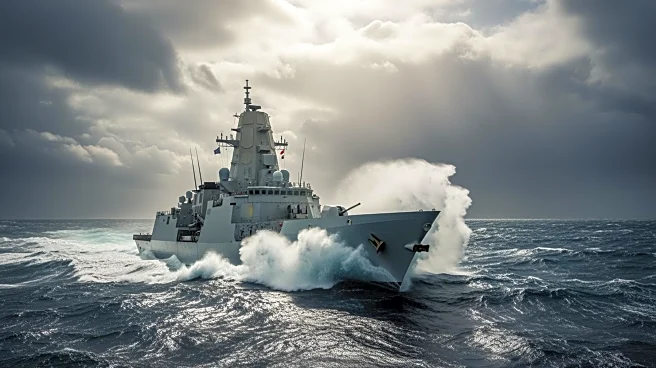What's Happening?
The European Union's counter-piracy force has deployed a warship to the Somali coast after a suspected pirate group attempted to target ships in the area. On Monday, armed assailants attacked a commercial
tanker off the coast of Mogadishu, marking the first suspected Somali piracy incident since 2024. The attack involved firing at the vessel and attempting to board it. Maritime security sources indicate that a fishing vessel may have been commandeered as a mothership for launching attacks. The EU's naval mission, Operation ATALANTA, is actively responding to the situation, deploying naval assets to ensure the safety of commercial shipping lanes.
Why It's Important?
The resurgence of piracy off the Somali coast poses significant threats to international shipping routes, particularly those transporting critical energy and goods. The deployment of EU naval forces underscores the importance of maintaining security in these waters to protect global trade. The incident highlights ongoing security challenges in the region, exacerbated by geopolitical tensions and the activities of militant groups. Shipping companies may face increased insurance costs and operational risks, impacting global supply chains and economic stability.
What's Next?
The EU's naval mission will continue to monitor the situation and may increase its presence in the region to deter further pirate activities. International cooperation and intelligence sharing will be crucial in addressing the threat. Shipping companies may reassess their routes and security measures, potentially leading to changes in maritime operations and logistics strategies.
Beyond the Headlines
The incident may prompt discussions on the socio-economic factors driving piracy in Somalia, including poverty and political instability. Efforts to address these root causes could involve international aid and development programs aimed at improving local conditions and reducing the appeal of piracy.










